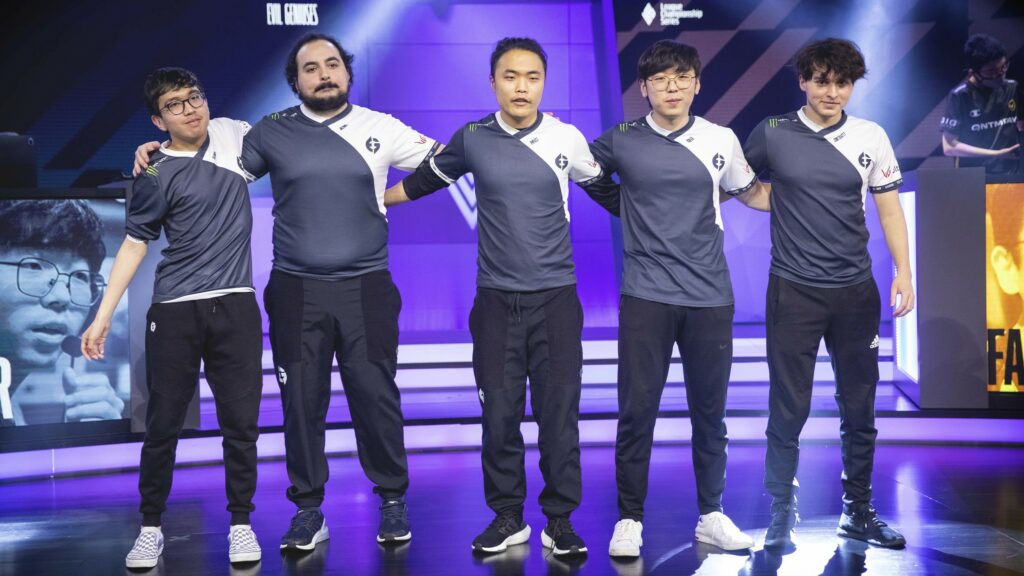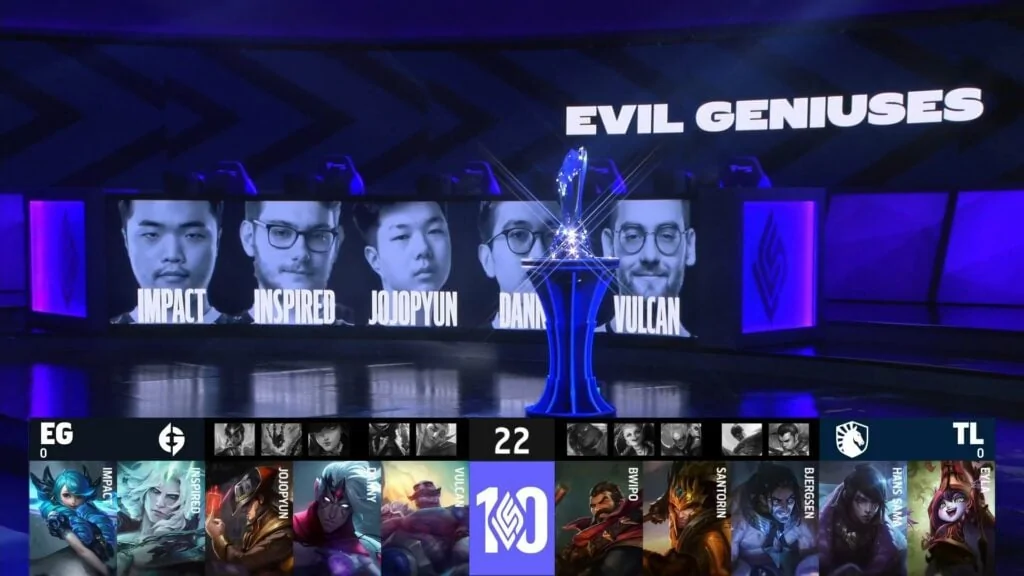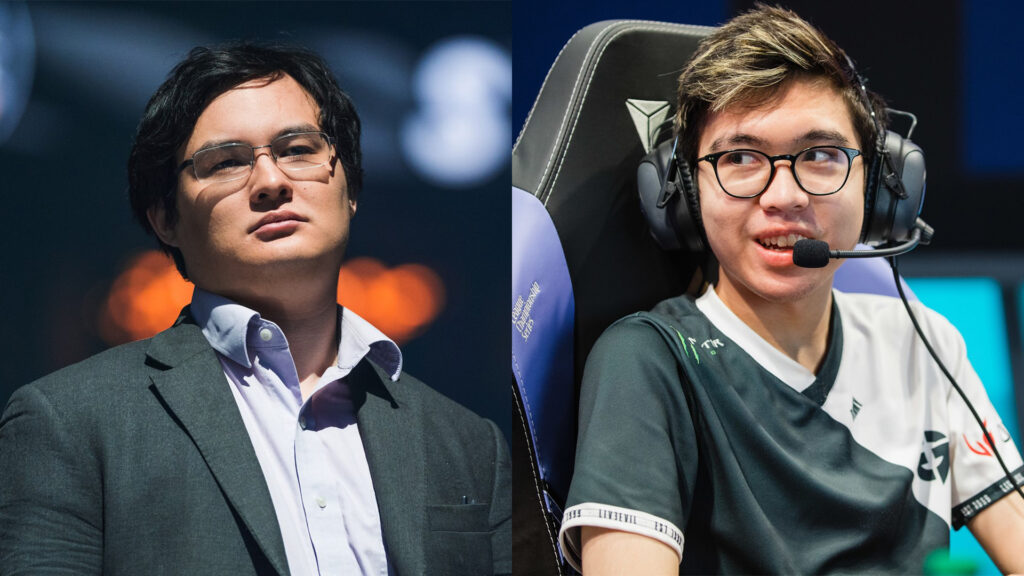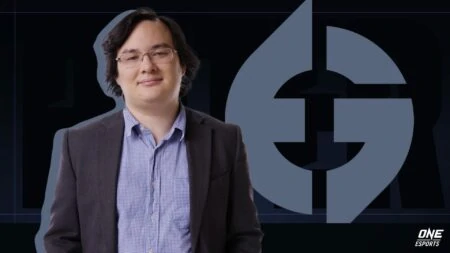This is ONE Esports’ third article in an exclusive interview series with Peter Dun. You can read the first and second article here, and the fourth article on how to set esports teams up for success here.
Peter Dun, a head coach in League of Legends, is a self-made esports coach with no prior pro experience.
He’s carved a unique pathway for himself into the industry, first volunteering to do ad hoc esports work during his university days in China when the League of Legends and Dota 2 pro scenes were still in their infancy.
There, he developed his own scouting and reviewing methods, refining them over the years as he coached a variety of teams in different regions.
Now, with more than a decade’s worth of experience in League of Legends and having coached so many different players at the highest level of competition, Peter Dun shared with ONE Esports the core principles that he continues to uphold today.
3 values you don’t compromise on when coaching esports pro players, according to Peter Dun

Respect
When Peter Dun joins a team, especially one made up of veterans, he expects to be tested.
To him, this isn’t “a bad thing” because he believes it’s “good to have a healthy mistrust in authority”. Of course, this doesn’t mean undermining or criticizing authority all the time. Instead, it’s a matter of making sure that the person is qualified to teach.
“For example, when the new team has Kasper ‘Kobbe’ Kobberup or Raymond ‘kaSing’ Tsang – they were on Splyce when I first joined – or Gabriel ‘Revolta’ Henud Cresci in Brazil, or Jeong ‘Impact’ Eon-young in North America, the first few weeks are really tough,” Peter related.
“For me, this is the weakness in my profile because I’m not a famous ex-player like Jakob ‘YamatoCannon’ Mebdi,” he explained. “When Wong ‘Tabe’ Pak Kan was in Brazil, he had a higher ELO than all of his players.”
In fact, Peter has only ever played two League of Legends champions in his life: Janna and Cho’Gath, way back in Season 2.
“I have a running joke where I say I’m an Iron II coach because my account is currently in Iron II,” he laughed. “It decayed after many, many years.”
Since he doesn’t have former pro player experience, he believes he has to add value in other ways, which has its own set of advantages and disadvantages.
“For a coach with no pro player background like me, if you make too many mistakes, it’s lost. You’ll never recover that trust again,” said Peter.
- How Peter Dun became a renowned coach even though he was never a pro player
- Why roses are so symbolic in Faker’s 10-year League of Legends career

Research
Building trust as a coach requires a deep understanding of League of Legends and entire libraries of in-game knowledge.
For Peter Dun, it is paramount that he enters every season prepared. As a coach, he lives and breathes League of Legends from morning till night. Even after office hours, he’ll grab a late dinner and watch China’s League of Legends Pro League (LPL) at 2 a.m. — and still get up early the next day.
A coach is there to provide information that pro players need. While Peter doesn’t expect to always have the right answer, he does expect himself to be able to provide examples from anywhere between 10 to 25 teams, break down their strengths and weaknesses, how they set up dragons, how they macro, what their early game strategies are, and how their jungler paths.
He also puts it on himself to explain how other coaches from different regions interpret the current League of Legends meta. With this mountain of knowledge at hand, only then is he equipped to have a thorough discussion with his team.
On top of that, he tracks individual players in every scrim he’s ever attended in a master Excel sheet that he started in 2016 when he was on INTZ.
“I had in my notes: ‘Caps, likes to int in scrims but could be a pretty decent player’,” he recalled. That was when INTZ scrimmed against 16-year-old Rasmus “Caps” Borregaard Winther before he made his professional debut. As it turns out, that comment would prove prescient.
Even during the offseason, he puts together a reading list with the intention to discuss these ideas with others, arguing for the sake of arguing about politics or coaching theory to keep his mind sharp.
If he’s in Germany, he’ll visit the local university to sit in on the debating society. “The threat of intellectual ridicule of a British person is a really good way to motivate yourself,” Peter laughed.
He also makes it a point to approach an amateur team in Europe or Brazil during the League of Legends offseason and volunteer to work with them for one or two weeks as they compete in local tournaments.
He does this to ensure that his “coaching is fresh” as he makes the “transition from not thinking about League of Legends for two months” to being back and ready for bootcamp when the new season starts.

Responsibility
To Peter Dun, a team’s success or failure is always the coach’s responsibility.
“It takes somewhere between six months and 15 months, maybe 24 months with certain players, to teach them everything I know about the game,” said Peter.
Compared to traditional sports, where it could take years to pass down information to players, League of Legends constantly changes with every patch. So instead of teaching players tried-and-tested ways of doing things, Peter Dun’s way of being responsible for his players boils down to “equipping them to think for themselves”.
This means taking a different approach toward each pro player. For example, during his time on Evil Geniuses when he coached rookie bot laner Kyle “Danny” Sakamaki, it was very different from coaching a veteran top laner like Jeong “Impact” Eon-young.
During these one-on-one sessions, Peter Dun places an emphasis on discussion and dialog. He brings various VODs of other League of Legends pro players and presents them to the player. For instance, he’ll watch eight pro players in a LeBlanc versus Syndra matchup, study them in-depth, then bring four of these to his mid laner to talk about which is best and how he would like to approach it.
Besides imparting in-game knowledge, Peter also focuses on fostering good team dynamics, both from the player’s and coach’s perspectives.
“It’s about helping players communicate. It’s not enough for you to be right all the time in a group discussion if you can’t persuade your teammates that you’re right,” Peter explained, emphasizing that this extends to coaches as well because mediation without contribution is equally futile.
One particular book he likes to recommend to coaches is “Never Split the Difference: Negotiating As If Your Life Depended On It” by Christopher Voss and Tahl Raz. During his one-on-one sessions with the other coaches at Evil Geniuses, they’ll discuss a chapter from a non-esports perspective, then review how applicable it is to esports.
“James ‘Mac’ MacCormack said it best himself — if I haven’t taught you everything I know about the game within 12, maybe 15 months, either you’re not trying hard, you’re not learning very well, or I’m not a very good coach,” Peter concluded.
“He jokes about it, but he probably means I’m not a very good coach, I’m not teaching the player in the way that they can learn. I agree with that philosophy.”
Follow Peter Dun on Twitter.
READ MORE: Peter Dun origins: How studying politics in China led him to esports

